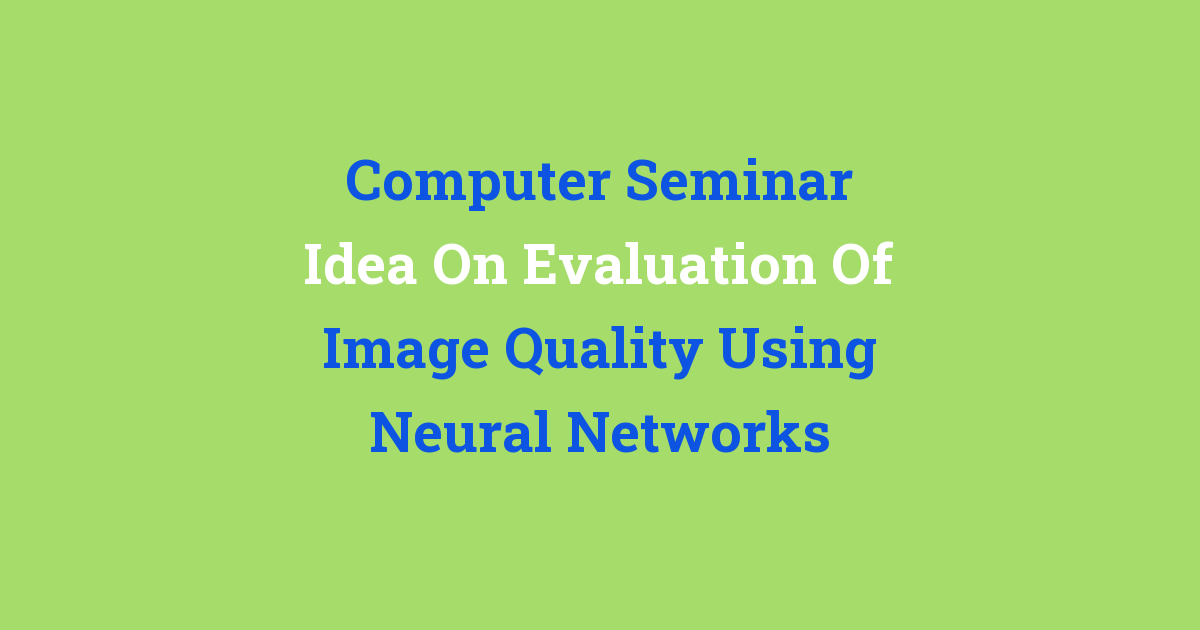I propose hosting a computer seminar focused on utilizing neural networks to evaluate image quality.
Computer Seminar Idea on Evaluation of Image Quality Using Neural Networks
Introduction
Image quality evaluation plays a crucial role in various areas such as medical imaging, security surveillance, and multimedia applications. Traditional methods of image quality evaluation are time-consuming and often require human intervention. With the advancements in technology, neural networks have emerged as a promising solution for automating the process of evaluating image quality. This computer seminar idea focuses on the evaluation of image quality using neural networks.
Problem Statement
The existing methods of evaluating image quality are not efficient and require manual intervention, which can lead to errors and inconsistencies. This poses a challenge in ensuring accurate assessment of image quality in various applications. Additionally, traditional methods may not be able to adapt to the ever-changing requirements of image quality evaluation in today’s dynamic technology landscape.
Existing System
The existing system for evaluating image quality typically involves manual processes or the use of predefined metrics such as peak signal-to-noise ratio (PSNR) or structural similarity index (SSIM). These methods are limited in their ability to accurately capture the perceptual quality of an image, as they often do not take into account the human visual system’s characteristics.
Disadvantages
Some of the disadvantages of the existing image quality evaluation system include:
- Lack of accuracy in assessing perceptual image quality
- Dependency on manual intervention
- Limited adaptability to changing requirements
Proposed System
The proposed system for evaluating image quality will leverage the power of neural networks to automate the process and improve accuracy. By training neural networks on a dataset of images with human-rated quality scores, the proposed system will be able to learn the perceptual quality characteristics of images and generate accurate quality assessments.
Advantages
Some of the advantages of the proposed system include:
- Automated image quality evaluation
- Improved accuracy in assessing perceptual image quality
- Adaptability to changing requirements through retraining
Features
The proposed system will include the following features:
- Neural network architecture optimized for image quality evaluation
- Training on a large dataset of images with human-rated quality scores
- Ability to generate quality scores for new images
- User-friendly interface for easy interaction
Conclusion
In conclusion, the evaluation of image quality using neural networks presents a promising solution to the challenges posed by the existing methods. By automating the process and leveraging the power of machine learning, the proposed system can improve the accuracy and efficiency of image quality evaluation in various applications. Further research and development in this area can lead to advancements in image quality assessment and contribute to the enhancement of various technological solutions.

